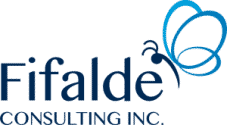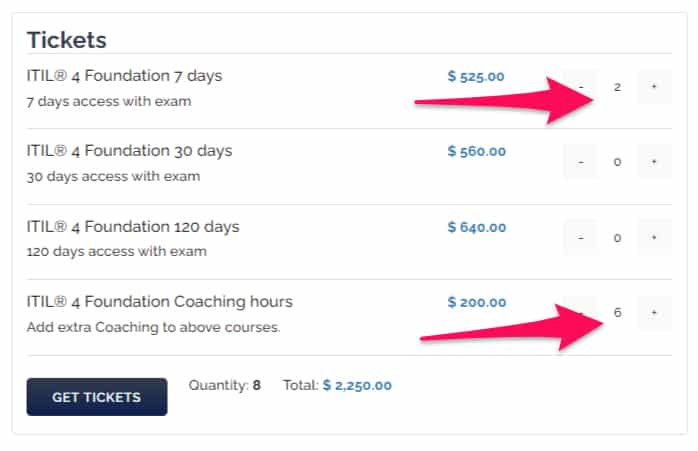
TOGAF® Enterprise Architecture COMBO (Level 1 & 2)
- - -
| $200.00 – $1,550.00The TOGAF framework, an Open Group Standard, is a proven Enterprise Architecture methodology and framework used by the world’s leading organizations to improve business efficiency. It is the most prominent and reliable Enterprise Architecture standard, ensuring consistent standards, methods, and communication among Enterprise Architecture professionals. Enterprise Architecture professionals fluent in the TOGAF standard enjoy greater industry credibility, job effectiveness, and career opportunities.
The TOGAF Standard Version is an update to the TOGAF standard providing improved guidance, correcting errors, improving the document structure, and removing obsolete content. Key enhancements made in this version include updates to the Business Architecture and the Content Metamodel. All of these changes make the TOGAF framework easier to use and maintain.
The standard is divided into seven parts:
- PART I (Introduction): This part provides a high-level introduction to the key concepts of Enterprise Architecture and in particular the TOGAF standard approach. It contains the definitions of terms used throughout the TOGAF framework and release notes detailing the changes between this version and the previous version of TOGAF framework.
- PART II (Architecture Development Method): This is the core of the TOGAF framework. It describes the TOGAF Architecture Development Method (ADM) – a step-by-step approach to developing an Enterprise Architecture.
- PART III (ADM Guidelines & Techniques): This part contains a collection of guidelines and techniques available for use in applying the TOGAF standard and the TOGAF ADM.
- PART IV (Architecture Content Framework): This part describes the TOGAF content framework, including a structured metamodel for architectural artifacts, the use of re-usable architecture building blocks, and an overview of typical architecture deliverables.
- PART V (Enterprise Continuum & Tools): This part discusses appropriate taxonomies and tools to categorize and store the outputs of architecture activity within an enterprise.
- PART VI (TOGAF Reference Models): This part provides a selection of architectural reference models, which includes the TOGAF Foundation Architecture, and the Integrated Information Infrastructure Reference Model (III-RM).
- PART VII (Architecture Capability Framework): This part discusses the organization, processes, skills, roles, and responsibilities required to establish and operate an architecture function within an enterprise.
The Level 1 certification is to provide validation that the Candidate has gained knowledge of the terminology, structure, and basic concepts of the TOGAF standard, and understands the core principles of Enterprise Architecture and the TOGAF standard. The TOGAF Level 1 certification is automatically achieved after passing the TOGAF Level 1 exam. The TOGAF Level 1 course provides an optimal preparation to pass the exam and, therefore, to obtain the certification. Level 1 is a prerequisite to continue with the following levels of qualification.
The Level 2 content focuses on the practical application of TOGAF framework, building on the foundational knowledge and comprehension of Part 1, using practical scenarios to enforce concepts. The TOGAF Level 2 certification is automatically achieved after passing the TOGAF Level 2 exam. The TOGAF Level 2 course provides an optimal preparation to pass the exam and, therefore, to obtain the certification. The Level 2 course deals with the basic principles of the methodology and looks at the components, principles and processes. The course prepares the participants for the exam TOGAF Level 2.
Objectives
- The Architecture Development Method (ADM) cycle and all the phases that make up the cycle, including for each phase
- The extended security considerations that need to be addressed during application of the ADM
- The changes to the structure of the TOGAF standard and the importance of the TOGAF Library
- The ecosystem around the TOGAF standard
- The changes to the TOGAF Content Framework and Metamodel
- The business rationale behind Enterprise Architecture and TOGAF®
- The techniques defined for use in Architecture development
- The Architecture Content Framework and the purpose of each of the elements
- The guidelines for adapting the ADM process
- The Enterprise Continuum as a classification reference tool
- The Architecture Capability Framework
- The make-up of an Architecture skills framework and why it is needed
Who it is aimed at
- Enterprise Architects
- Business Architects
- Business Analysts
- Program / Project Managers
- Solution Architects
- Application Architects
- Data Architects
- Infrastructure / Technology Architects
- Security Architects
- Technology Vendors
- Professional Services Vendors
- Change Managers
- Technical Designers
- IT Strategy Managers
- Chief Information Officers
- Chief Technology Officers
- Presales Consultants
- IT Managers
Contents
- The new concepts introduced to TOGAF® .
- The business rationale behind Enterprise Architecture and TOGAF®.
- The overall structure and contents of the TOGAF®document and the key subject matter content.
- The Architecture Development Method (ADM) cycle and all the phases that make up the cycle.
- The techniques defined for use in Architecture development.
- The Architecture Content Framework and the purpose of each of the elements.T
- The guidelines for adapting the ADM process.
- The Enterprise Continuum and Tools.
- The concepts, taxonomy and graphical representations of the TOGAF® reference models and their application.
- The Architecture Capability Framework.
- The make-up of an Architecture skills framework and why it is needed
Prerequisites
- TOGAF® Level 1: There are no formal prerequisites for participation in this course.
- TOGAF® Level 2: TOGAF® Level 1 certificate
The e-learning version is provided by iLEARN – Innovative Learning
TOGAF® is a registered trademark of The Open Group in the United States and other countries.


